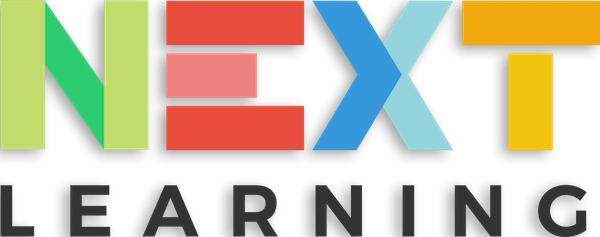You don’t need to win a Nobel Prize for Literature to know that the times, they are a- changin’.
In the world of work, times were a-changin’ pretty damn fast even before someone wrote the novel Coronavirus. Keeping up with labour markets has been challenging for policy makers and pawns alike.
Most of us now accept that ICTs are driving a transformation as significant as the mechanisation of manufacturing and agriculture last century.
We know that many jobs will be lost and that almost all will change. We understand, too, that jobs will be created – some foreseeable, others now inconceivable. There’s more to it than doom and gloom.1
Next Learning co-founder Paul Reid points out that the implications for educators are profound and that, even when uncertainty reigns, it is important to stay strategically positive.
‘We created our company around the idea that there is always a “next”, and that schools need support in facilitating the “next” in the “now” of education,’ Reid says.
Deloitte Australia CEO Richard Deutsch is similarly upbeat. Amid anxiety about the future of work, Deutsch prefers to keep it simple: ‘People, and their unique interpersonal and creative skills, will be central to the future of work.’2
He is far from alone. ‘Yes, technology is driving change in the way we work and the work we do,’ says macro economist David Rumbens, ‘But it’s ultimately not a substitute for people.’3
Two years ago, a World Economic Forum (WEF) survey of Australian companies about the characteristics of workers most likely to be in demand highlighted the need for transferable skills, valued across different industries and roles. Not surprisingly, digital skills were seen to be an essential part of the package.
Yet companies also believe that creativity, analytical thinking, problem-solving, reasoning, initiative, flexibility and emotional intelligence would be valuable currency in future labour markets.4
The days when you could just ‘know stuff’ are gone. What matters now is the ability to access and communicate ‘stuff’ in a timely and appropriate manner. If the digital world is fluid, employers want flippers, snorkels and masks.
There will be no future shortage of jobs because, as Deutsch says, ‘for every problem there’s a job, and the world isn’t running out of problems’.5 Sadly, however, there is currently a mismatch between the skills Australians have, and those needed to succeed in a 21stcentury economy. A recent report from WEF ranked Australia 23rd in the world for digital skills.6
That needs to change. According to Saadia Zahidi, a director of WEF, one consequence of the pandemic will be accelerated digitisation and automation across sectors.7 Employers will work to enhance corporate resilience through increased flexibility and remote work capacity – qualities that schools themselves have needed to embrace this year.
Clearly, those who populate our future world of work will be those whose learning is premised on the idea that there is strength in amenability and adaptability. As Next Learning Director Shane McGurk puts it, ‘The only thing that doesn’t change is the fact that things change. Our kids need to be prepared for the unknown.’
- S. Zahidi, ‘The Future of Work is Here’, Japan Times, 11 May 2020; https://www.japantimes.co.jp/opinion/2020/05/11/commentary(accessed 12 May 2020).
- Deloitte Australia, Media Release, 12 June 2019; https://www2.deloitte.com/au/en/pages/media-releases/articles/work-human-australia-faces-major-skills-crisis-120619.html#
- Ibid.
- World Economic Forum, The Future of Jobs Report, 2018.
- Deloitte Australia, op.cit.
- PwC, ‘Australia’s Mismatched Workforce’; https://www.pwc.com.au/publications/australia-matters/australias-mismatched-workforce.html
- Zahidi, op. cit.









